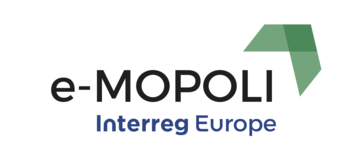Romanian partner organized first staff exchange in e-MOPOLI project from the 17th until the 20th of September 2019. 23 people were involved in the activities of the staff exchange the first day, 13 the second day and 9 on the 3rd day of the staff exchange activities. Activities were thematically covering market take-up, e-mobility services, introduction of policies and overall challenges needed to be faced by the stakeholders addressing sustainable mobility and multimodal split.
We’ve gathered some impressions from the participants:
Since Bucharest has about 2 M residents there is a rising interest from companies to invest in electric mobility services. This is very encouraging for the implementation of electric mobility, considering that also on the governmental level Romania has one of the highest financial incentives for the implementation of e-mobility. It seems this is only the beginning of the e-mobility and mobility on alternative fuels in Bucharest – Ilfov region. As the proverb goes, “the best is yet to come”. The next best thing will be a very interesting event on mobility and e-mobility, a moto show, organized by the members of APIA in Bucharest, in March.
(Slovenian participant)
We learned about many different aspects of charging solutions, public transport evolution, efforts from automotive manufacturers, importers and dealers and mobility planning. We got for example detailed information about the different types of charging stations, business cases for charging infrastructure and maintenance options. In addition, during a very interesting visit of the BMW we learned about market preferences and expectations towards the future. At the Bucharest City Hall we got a profound explanation about how to get different stakeholders around a table and come to a common plan. Their approach was inspiring and hopeful.
(Flanders participant)
Two main achievement were reached at the end of staff-exchange: the first to discover business model and initiatives of private sector (TMC Electric mobility) such as the promotion new mobility services and options by the offer of charging infrastructures and e-vehicles and the second how public transport company are approaching the e-mobility diffusion in their business model. It was clear that e-mobility is a solution for LPT that have to be included only in specific services of mobility and not to substitute all conventional vehicles.
(Italian participant)


![[NEWS] Brescia: E-bike sharing in Brescia](/fileadmin/user_upload/tx_tevnewsevents/news/image_1664960602.jpg)
![[NEWS] Rogaland: battery-only high speed craft](/fileadmin/user_upload/tx_tevnewsevents/news/image_1664804367.png)
![[NEWS] BSC: promoting e-mobility in Gorenjska](/fileadmin/user_upload/tx_tevnewsevents/news/image_1660136312.png)
![[NEWS] BSC: new opportunities for cooperation](/fileadmin/user_upload/tx_tevnewsevents/news/image_1660136159.jpg)
![[NEWS] Rogaland: Solar power for electric airplanes](/fileadmin/user_upload/tx_tevnewsevents/news/image_1660135530.jpg)
![[NEWS] Bucharest: decarbonization of transports](/fileadmin/user_upload/tx_tevnewsevents/news/image_1656521459.jpg)
![[NEWS] Calabria: CENTRE FOR SUSTAINABLE MOBILITY](/fileadmin/user_upload/tx_tevnewsevents/news/image_1655983407.png)
![[NEWS] BSC: rental system network for bikes](/fileadmin/user_upload/tx_tevnewsevents/news/image_1655967495.png)
![[NEWS] Attica: Electromobility in Paiania](/fileadmin/user_upload/tx_tevnewsevents/news/image_1655110894.png)
![[NEWS] Attica: First e-bike festival in Athens](/fileadmin/user_upload/tx_tevnewsevents/news/image_1655110292.png)